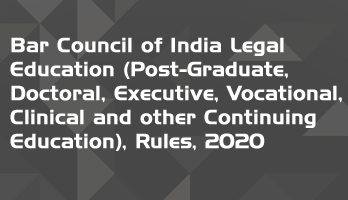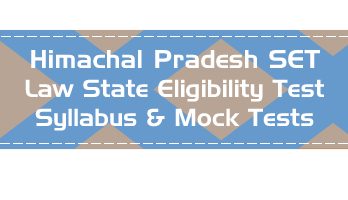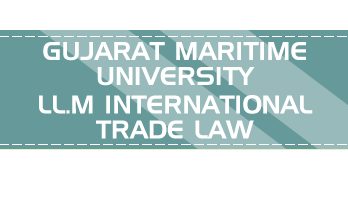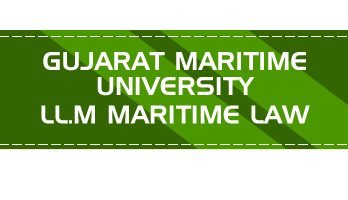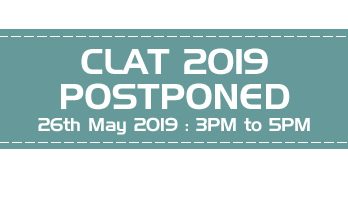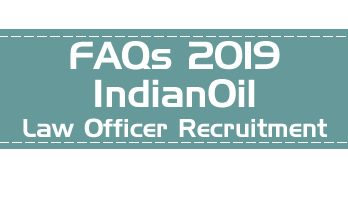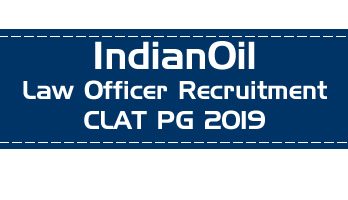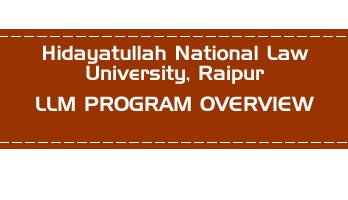Q : What’s the best way to prepare for the CLAT LLM? What books should I refer to?
Ans :
Are you buying the right material ?
First of all, the CLAT PG LLM entrance exam is a multiple choice objective type exam based on the entire LLB syllabus. But the crucial topics are Jurisprudence & Constitutional law – which together account for 2/3rd of the exam (66%).
Extensive theory is not the best way to prepare for multiple choice based exams. The ideal approach would be to solve as many MCQs as possible, covering the entire syllabus, with focus on the critical areas and solve all the previous papers you can find.
Solve at least two mock tests every day and after you have finished, re-attempt the ones from the previous day till you can blindly click on the right answer without thinking too much.
After all, almost 85% of the questions are repeats / variants from previous years or derived from ‘important questions’ from other similar exams.
Q : What is the syllabus for the CLAT in a PG course in ?
Ans :
The Dates and details for the CLAT PG have been announced; and as per the official announcement, questions will be asked from the following areas of Law:
- Constitutional Law: 50 Marks
- Jurisprudence: 50 Marks
- Other Law Subjects such as Contract, Torts, Criminal Law, International Law, IPR etc.: 50 Marks
No change in the overall pattern of the paper; so it will continue to be 1 mark per Question, -0.25 for wrong answer.
The preparation for the exam should emphasize practicing more questions in the ‘important areas’.
If you are already preparing for other LLM entrance exams / AIBE, your CLAT prep will overlap with those, but remember, AIBE does not have too many Jurisprudence questions (not mentioned in the official syllabus too.) and the spread is across all LLB topics.
The best way to prepare for any objective type MCQ based exam is to practice, practice & practice some more – till you can select the right answer without thinking twice.
Recently, we have published the
Q : How should I prepare for DU’s LLM entrance?
Ans :
The old pattern of the DU LLM entrance exam (pre 2017) had 175 MCQs to be attempted in two hours. The new pattern, from has 100 MCQs drawn from the following areas :
- Constitutional Law of India
- Jurisprudence
- Law of Contracts
- Sale of goods Act
- Law of Torts
- Consumer Protection Act
- Family Law (Hindu law & Muslim law)
- Public International Law
- Criminal Law
- Company law and Partnership
- Intellectual Property Rights
- Cyber Law
- Environment Law
- In addition a few questions may address contemporary legal issues
There is no specific topic-wise weightage mentioned in the previous official bulletins.
Since the number of topics is quite vast, the best way to approach this exam (and other MCQ based exams) is to just keep practicing.
If you practice enough questions till you get almost everything correct, you will see that you can mechanically select the correct answers to almost all the questions in the real exam without having to think twice!
Q : What books should I read for LLM Clat Exam ?
Ans :
The Dates and details for the CLAT PG have been announced and your preparation should be in full-swing by now.
The syllabus for the CLAT PG LLM is based on the regular BCI approved LLB syllabus, but there is a higher emphasis on certain topics :
As per the official announcement, questions will be asked from the following areas of Law:
- Constitutional Law: 50 Marks
- Jurisprudence: 50 Marks
- Other Law Subjects such as Contract, Torts, Criminal Law, International Law, IPR etc.: 50 Marks
So, the preparation for the exam should also be such that you practice more questions in the ‘important areas’.
The best way to prepare for any objective type exam is to practice, practice & practice some more – till you can select the right answer without thinking twice.
Q : Which book is helpful or advisable for the BAR council of India exams?
Ans :
There is the hard way & then there is the easy way . . .
Passing the AIBE – All India Bar Exam is not a big challenge, if you plan for it in the right way.
Studying for the Bar Exam is not the same as studying for the CLAT PG or Judicial Services etc.
In other exams, you should try to score the highest possible marks; to score more marks than other competing students – since your aim is to get a higher ranking and get shortlisted for admissions or interview etc.
But the AIBE is different. Your objective is to score at least 40 marks, clear the exam and get your COP.
Also, the exam is a multiple choice, objective type, with no negative marking – which makes life a lot more easier.
More over, it is an open book exam – which makes even more simpler; if you know which book to open 🙂
If you want to do it the hard way, look at the AIBE XII syllabus – there are 19 topics, which cover around 25+ different acts and areas of law; which is a bulk of the LLB syllabus.
Going through all of them would be a significant task. But yes, it can be done, and should be done, if you are simultaneously preparing for other post LLB exams.
If you want to do it the easier way, practice thoroughly with the last 8 years papers (The AIBE papers from 2014 to 2017) and also practice as many mock tests with selected MCQs from all the important areas of the AIBE syllabus
If you look at the previous 8 years papers, you will find several repeated questions + questions from select areas of the syllabus topics and there is a particular pattern in the questions. e.g. important sections, important case laws etc.
So, my suggestion would be to :
[1] Practice all the previous papers – at least three of four times each; so that you can easily choose the answer for the same / similar question.
[2] Practice multiple times with at least ten full-length mock tests with ‘most probable’ questions.
How does this approach help ?
[a] If you complete (1) and (2) thoroughly, you will have practiced around 1800 ~ 2000 MCQs – and all you need to pass the AIBE is to answer just 40 ~ 50 question correctly in the real exam.
[b] As you practice the previous papers + the mock tests, you will be referring to any printed or written material that you have (your text books / Bare acts etc.); so you will become familiar with the acts & laws and also adept at searching & finding the answer for most of the questions quickly.
We at LawMint have put together a online prep-pack for the AIBE XII for unlimited & target practice to clear the AIBE.
If you are taking the Bar exam this year, do check out our
Q : Can a 30-plus-year-old join any of the NLUs to study 5-year law?
Ans :
Yes. Absolutely yes.
As of now, 13th Mar , there is no upper age limit for applying to any of the NLUs through the CLAT.
If you go to the CLAT official website and check the eligibility page, the first line says :
“There will be no upper age limit for UG Programme in CLAT ” and the last line about the PG programs says “No upper age limit is prescribed for appearing in CLAT- .”
Q : Is there any working hours law in India?
Ans :
Yes . . .
There are Union level laws & rules + State level laws & rules that govern almost all places of work in India.
The hours of work, breaks, over time, shifts, max hours per week etc. are governed by the applicable laws depending on the type of company and nature of work.
For example, while the Karnataka Shops & Commercial Establishments act 1961 governs the working hours of many businesses, the 2001 amendment to the act provides additional flexibility to IT & BT companies.
So, depending on the nature of the company, you should refer to one or more of the applicable laws and arrive at the work hours applicable.
e.g. Factories Act, 1948 , Mines Act, 1952, Minimum Wages Act, 1948, Plantation Labour Act, 1951, The Apprentices Act, 1961, Working Journalist (Conditions of Service) and Miscellaneous Provisions Act, 1955
Q : What is the need for a bar council?
Ans :
Oversight, Regulation, Management . . .
For a detailed explanation, refer to Sections 3 to 7 of the Advocates act 1961 (link below), it explains how the State & India Bar councils are constituted, their membership, functions etc.
To put in simpler terms; like every other regulated profession in India, e.g. Medicine, CA, CS etc., the legal profession also requires a central body to manage the entire gamut of the study and practice of Law.
The BCI and the State Bar Councils oversee, regulate and manage Legal education, entry into Legal practice and the subsequent aspects of the legal profession in India
Link to Advocates Act 1961 :
Q : What is the maximum notice period, as per the employment law in India? And can a company have a separate notice period policy for an onsite return employee?
Ans :
There is no upper limit . . .
Technically there is no upper limit for the notice period that can be written into an employment contract in India.
I have seen / drafted contracts which had 15 days NP (for entry level contract staff); all the way up to 6 months for senior CXO level roles. There was also a Country Head level role for a MNC company that had a 1 year clause.
Are these clauses strictly enforceable? Depends on the circumstances.
Logically and legally, it is a valid contract that has been agreed to and signed by both the parties and while it may be lopsided in favor of the employer, the candidate did agree to it to get the job right?
The Contract will say something like 3 month notice period or pay in lieu of the same; but the choice will be at the discretion of the company.
Given that it takes around 3 to 4 months to recruit for a senior level role (the recruitment process takes around a month + the candidate has to serve the notice period in his current company), most companies will insist on the 3 month notice period to be served fully; citing knowledge transfer, completion of current projects etc.
Some companies realize that an employee on his way out may not be working at full-potential; and there is also an element of risk involved in terms of performance errors, data confidentiality etc. So, they generally relieve people early.
And can a company have a separate notice period policy for an onsite return employee?
Yes. There is nothing illegal about it.
If a company is sending an employee onsite for a project or for training etc. There is an element of cost involved over and above the normal salary. The visa costs, travel costs, allowances etc. will come up to a few lakh Rupees.
Also, the expectations may be that the person will stabilize the project, support it for a long term or train others after coming back etc.
So, to discourage employees from putting in their papers soon after coming back to India, companies may add some additional clauses into the contract; stating a higher notice period if sent onsite, or repayment of cost of travel + other expenses in case of default.
The choice again is with the employee here; if you want to be sent onsite, you have to agree to the more restrictive terms; and most employees will sign on the dotted line.
What happens if you renege on the notice period?
If an employee does not serve notice period and does not pay the salary amount for the period of default, the company may dock the amount from his dues; or send a legal notice asking for repayment.
While very few companies will actually go to the extent of legal proceedings in case of default, what they will usually do is update their records to show the employee as ‘not eligible for re-employment’. And, may refuse to issue relieving letter in case of not completing the contract period.
Issuing a relieving letter is not mandatory; only settling of dues is essential. Even if a relieving letter is issued, it can contain adverse statements.
Most (if not all) companies insist on a relieving letter from previous company when a candidate is coming on-board. (There can be exceptions; but it will need the hiring manager to put up a strong case to the senior management to get such a waiver and is rarely resorted to.)
Also, when the background check is done and a reference request is sent to the previous company, they will reply with an adverse comment; which will again need exceptions / sign-offs etc.
Bottom-line is that I would strongly suggest completing the notice period and get a proper relieving letter; else you will have a lot of explaining to do in your next company.
Q : Can I get a job in United Nations after doing LLM in human rights law?
Ans :
No.
AFAIK, no UN arm has a regular direct recruitment program for LLB / LLM graduates.
So, No. an LLM degree does not guarantee a job or a shot at a job with the United Nations.
But, I have seen UN / Unicef / UNDP etc. occasionally advertising ‘legal internship’ (Unpaid – Voluntary) programs outside India #, calling for law graduates & typically the requirement is that the applicant should have completed (or at least in the final year) of a four year law degree.
Since India has a 3 / 5 year LLB; for students who have completed a 3 year LLB an LLM should help put the tick in the boxes.
# When such internship programs are announced in Indian ‘Duty Stations’, I believe the requirement should be modified to say 3 year LLB.
Yes.
In general, an LLM degree adds an advantage and a differentiation to a applicant’s profile for any job.
If there is a pool of applicants with similar profiles (all LLB grads) for any role, companies do tend to use some filters to arrive at a short-list and one of them can be a Masters.
So, if LLB grad has an opportunity to take up an LLB, I would strongly recommend the same.
Q : What are the passing marks for the AIBE 11 ?
Ans :
40 marks . . .
The AIBE 11 was already held in Dec 2017. The AIBE 12 will be held in ; most probably in the first half of the year.
The pass marks so far have been 40; and I don’t think there will be any change in .
Q : Can a practicing CA in India become a practicing member of the Bar Council?
Ans :
No.
A full time LLB degree is mandatory for registering as a practicing advocate with the Bar Councils in India. (State or BCI).
Q : Can I pursue an LLB from a distance education? Is it worth it? Is it recognized by the Bar Council?
Ans :
‘Yes’, ‘Depends’ & ‘No’
‘Yes’. You can pursue an LLB via distance education. A quick Google search shows several Institutions in India offering a distance education ‘Bachelors degree in law’, usually a BL / BBL etc. But there are also some which offer an LLB! Like this . . .
Q : What is the probability of selecting the correct answer by guessing out of five options in an MCQ exam?
Ans :
20% i.e. one of the 5 choices is the correct answer . . . so the probability is 1/5
Similarly, the probability of selecting a wrong answer will be 80%, since 4 out of the five choices are wrong . . . i.e. 4/5
As the number of choices go down, the probability of randomly choosing the correct answer will increase.
If the exam has negative marking for wrong answers, the weight-age should help you decide whether it makes sense to randomly select an answer or skip the question and move on
If there is no negative marking, just answer every question . . . even if it just a random guess.
Q : How do I register for the California Bar Exam as an Indian student?
Ans :
This is copy pasted from one of my previous answers . . .
A difficult path ahead . . .
While I can write an answer that is a couple of thousand words long explaining why it is very difficult / very expensive, let me summarize as briefly as possible.
- To practice as a lawyer in the US, you need to clear the US Bar exams – Multi State Bar Exam & State Bar Exam.
- To be eligible to take the Bar Exam, you need to have a US LLB / US recognized LLB.
- While there is a rule that foreign law degree holders can submit their current degree for evaluation / recognition as equivalent to a US LLB, from what I have seen / understood, it doesn’t work for Indian LLB degrees.
- Indian LLB degree holders are required to complete a US LLM program to ‘cure the deficiencies’ (full-time, in the US, not via distance) to be eligible to take the Bar Exam.
- Even if your get a waiver and are allowed to take the US Bar with just your Indian LLB, you may still need to take up LLM to make the grade for employment there.
- If you have decent academics, getting admission into a US LLM should be possible.
- But the cost of a full-time one year LLM in the US will be around INR 40 ~ 60 Lakhs.
- After completing your LLM, you will need to take up the Bar Exams and then the subsequent steps to practice / seek employment.
Is it impossible ? No.
Is it difficult ? Yes.
Is it expensive ? Yes.
If you have some reason to go and stay in the US for a long duration, then you can surely explore the options of taking up a US Law degree. At least the cost of stay and other expenses is taken care of.
Though tuition fees are high, you should try for some grants / scholarships to offset part of the cost.
Can I take up a US Distance LLB / LLM ? – Nope.
Distance LLB / LLM are not recognized for Bar Exam eligibility.
More reading material for you :
Q : Old Man Wrinkle spent one-fourth of his life as a boy, one-eighth as a youth, and one-half as an active man. If Old Man Wrinkle spent 8 years as an old man, then how many years did he spend as an active man?
Ans :
The sum total of all the fractions will be equal to 1
So, 1x – (1/4x + 1/8x + 1/2x) = 8 years
So, x will be 64
1/2x will be 32
Q : Why should we study an LLM after an LLB? What is the main objective of studying LLM?
Ans :
Why LLM ?
- It is a ‘specialization’ option, where you can focus academically on a particular area of law.
- LLM is also useful if you are planning to take up teaching at some point, most colleges prefer faculty with a Master’s Degree or higher (even for guest / visiting faculty)
- It is a stepping stone for eventually pursuing a PhD.
- If you are pursuing a corporate career, a LLM can help you stand out from the crowd of applicants.
- If you are practicing independently, having the additional degrees after your name can be helpful from a ‘marketing’ perspective . . .
If I may use an example for the last point, if you had a choice of going to an MBBS Doctor or an MBBS, MD, FRCS; who would you prefer?
(Of course, there are many MBBS Doctors who may have better experience and probably are more knowledgeable than folks with higher degrees; my example is purely from an ‘optics’ perspective.)
In any case, if there is an opportunity to get a higher degree in any field; why not!
Thanks for the A2A.
Q : What are the best (good quality and above INR 1,000) men’s wallets available in India?
Ans :
Titan ?
I have been using Titan wallets for quite a while now and they seem to be good, in terms of not getting warped due to sweat, rain, over stuffing . . .
First one lasted around 3 ~ 4 years years, (it was still working fine, but I got a new one as a B’day gift so I threw the old one.) and the second one is around 2 years old.
Yes, this is the same Titan, the watch company. They sell wallets, belts and other men’s accessories.
They are in the INR 900 ~ 1500 range.
Q : Can we do law after doing a BSc course?
Ans :
Yes, you can . . .
In any case, LLB is a higher degree course, so you need to be a graduate in any stream to take up LLB.
If your goal is to take up law and you are yet to take up your graduation, you can look at a 5 year integrated LLB program, which helps you save one year.
If you want to keep your options open, take up a regular graduation and you can always take up law after you graduate. In the long run, +/- one year should not matter much.
Q : Can a B.Com student apply for the CLAT?
Ans :
Yes you can . . . but . . .
If you have completed your 10+2 and scored at least 45% (Gen) or 40% (SC/ST), you can apply for the CLAT.
But CLAT is used for admissions into the 5 year BA-LLB, BCom-LLB or BSc-LLB programs. You will not get any waivers for the graduation that you have already completed.
So, if you do take up CLAT and get an admission, you will study for the next 5 years. On the other hand, if you take up a 3 year LLB, you will save 2 years.
That said, if your heart is set on going an LLB from one of the National Law Schools, then why not! You can take up CLAT 🙂
Q : How will we start practicing after completing a B.A. Honours and LLB in the Kolkata high court?
Ans :
[1] Complete your LLB
[2] Enroll with your State Bar Council
[3] You can start practicing immediately, for up to 2 years – either independently or under any practicing Advocate
[4] Clear the AIBE – Bar Exam, within 2 years from enrollment
[5] If you don’t clear AIBE within two years, pause your practice, clear the exam and recommence. (No limit on attempts / age for AIBE)
Since practice of law is 50% theoretical and 50% practical; it would be better to start off as an apprentice with an practicing advocate. It will help you build your work-experience, client management skills, practical experience on the administrative aspects of practicing law and develop contacts in the local community.
There has been some proposals (and rules which were later repealed) about laying down some minimum experience standards for practicing in the High Court / Supreme Court; but as of now, I am not aware of any minimum experience requirements for practicing in the High Court. (I would recommend a detailed reading of the latest BCI Practice rules to clarify.)
Thanks for the A2A



